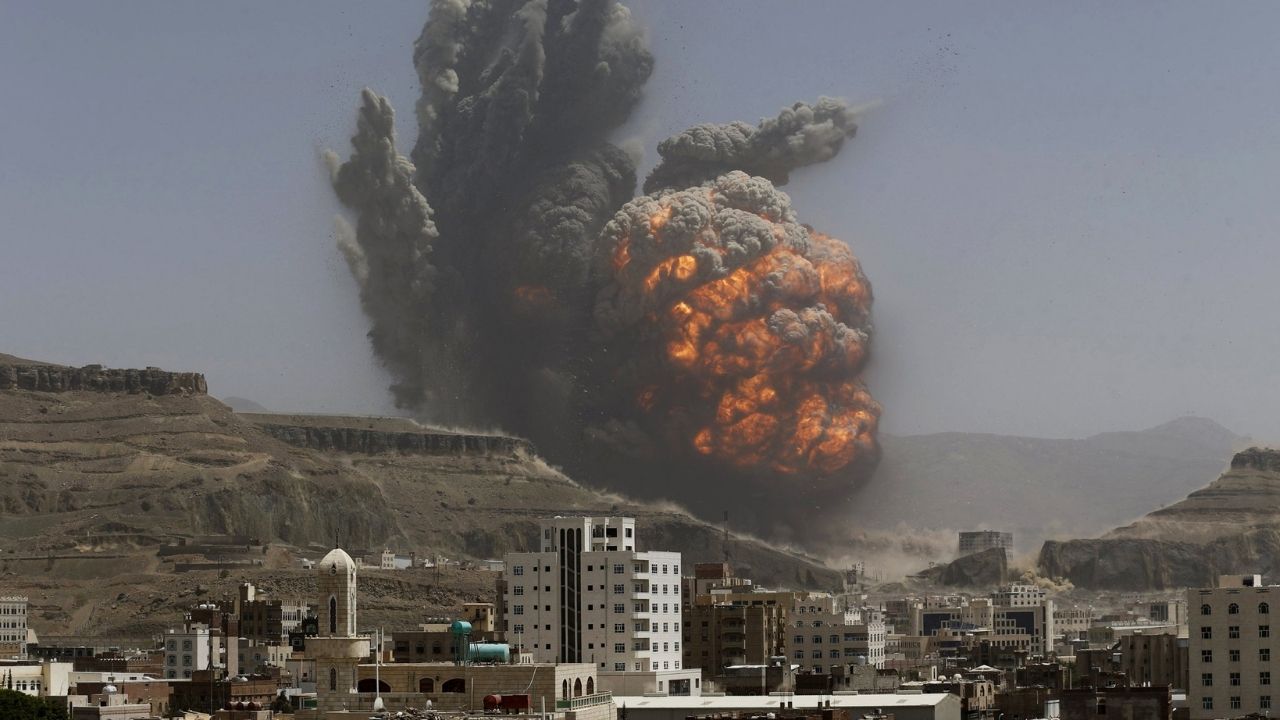
Why is the Bombardment of Yemen significant? The bombardment of Yemen holds immense significance due to its devastating impact on the region and its people. This conflict, which began in 2015, has led to one of the world's worst humanitarian crises. Thousands of civilians have lost their lives, and millions face starvation and disease. The infrastructure, including hospitals and schools, lies in ruins. The involvement of multiple countries and factions has turned Yemen into a battleground for regional power struggles. Understanding the bombardment's effects helps grasp the broader implications for global politics, human rights, and international law.
Key Takeaways:
- The bombardment of Yemen, starting in 2015, has led to a devastating humanitarian crisis, impacting millions of people and causing significant damage to the country's economy, culture, environment, and historical sites.
- Despite ongoing efforts for peace and the role of media in raising awareness, the conflict in Yemen continues to have a profound and far-reaching impact on the country and its people.
The Start of the Conflict
The bombardment of Yemen has been a significant event in recent history. Understanding the origins and key moments can provide insight into the ongoing crisis.
- The conflict began in 2015 when a coalition led by Saudi Arabia launched airstrikes against Houthi rebels in Yemen.
- The Houthis, a Shia Muslim minority group, had taken control of Yemen's capital, Sanaa, in 2014.
- The coalition's goal was to restore the internationally recognized government of President Abdrabbuh Mansur Hadi.
Humanitarian Impact
The bombardment has had a devastating effect on the people of Yemen. The humanitarian crisis is one of the worst in the world.
- Over 24 million people, about 80% of Yemen's population, are in need of humanitarian assistance.
- More than 10,000 children have been killed or injured since the conflict began.
- The blockade imposed by the coalition has led to severe shortages of food, medicine, and fuel.
- Cholera outbreaks have affected over 1 million people due to the destruction of water and sanitation infrastructure.
International Involvement
Various countries and organizations have played roles in the Yemen conflict, either directly or indirectly.
- The United States has provided logistical and intelligence support to the Saudi-led coalition.
- Iran has been accused of supplying weapons and support to the Houthi rebels.
- The United Nations has attempted multiple peace talks, though most have failed to produce lasting results.
- Several European countries have suspended arms sales to Saudi Arabia due to concerns over civilian casualties.
Economic Consequences
The bombardment has also had significant economic repercussions for Yemen and the broader region.
- Yemen's economy has contracted by over 50% since the conflict began.
- The blockade has crippled Yemen's ports, which are vital for importing goods.
- Unemployment rates have skyrocketed, with many businesses destroyed or unable to operate.
- The agricultural sector, which many Yemenis rely on, has been severely disrupted by the conflict.
Cultural and Historical Damage
Yemen is home to many historical and cultural sites that have suffered due to the bombardment.
- The ancient city of Sanaa, a UNESCO World Heritage site, has been heavily damaged.
- The Great Dam of Marib, another historical landmark, has also suffered from airstrikes.
- Many museums and libraries have been looted or destroyed, leading to the loss of invaluable artifacts.
- The conflict has disrupted traditional Yemeni cultural practices and social structures.
Environmental Impact
The bombardment has not only affected people but also the environment in Yemen.
- Airstrikes have caused significant pollution, contaminating air, soil, and water sources.
- The destruction of infrastructure has led to widespread waste and debris, posing health risks.
- Wildlife habitats have been destroyed, affecting local biodiversity.
- Oil spills from damaged facilities have polluted coastal areas, harming marine life.
Efforts for Peace
Despite the ongoing conflict, there have been numerous efforts to bring peace to Yemen.
- The Stockholm Agreement in 2018 aimed to cease hostilities in key areas but has seen limited success.
- Local ceasefires have occasionally been brokered, providing temporary relief to civilians.
- Humanitarian organizations continue to work tirelessly to deliver aid and support to affected populations.
- Grassroots peace initiatives led by Yemeni women and youth have gained international recognition.
The Role of Media
Media coverage has played a crucial role in shaping international perceptions of the Yemen conflict.
- Journalists face significant risks, with many being detained or killed while reporting on the conflict.
- Social media has been a vital tool for activists to raise awareness and mobilize support.
- International news outlets have been criticized for inconsistent coverage, often overshadowed by other global events.
Final Thoughts on Yemen's Bombardment
The bombardment of Yemen has left a significant mark on its people and history. This conflict has caused immense suffering, with countless lives lost and many more displaced. The humanitarian crisis continues to worsen, with food shortages and medical supplies running low. Despite international efforts to bring peace, the situation remains dire. Understanding the facts about this conflict helps shed light on the urgent need for a resolution. Awareness and advocacy can play crucial roles in pushing for peace and aid. The resilience of Yemen's people amidst such adversity is a testament to their strength. As global citizens, it's essential to stay informed and support efforts to end the suffering. The world must not turn a blind eye to Yemen's plight. Every voice counts in the call for peace and rebuilding.
Frequently Asked Questions
Was this page helpful?
Our commitment to delivering trustworthy and engaging content is at the heart of what we do. Each fact on our site is contributed by real users like you, bringing a wealth of diverse insights and information. To ensure the highest standards of accuracy and reliability, our dedicated editors meticulously review each submission. This process guarantees that the facts we share are not only fascinating but also credible. Trust in our commitment to quality and authenticity as you explore and learn with us.
